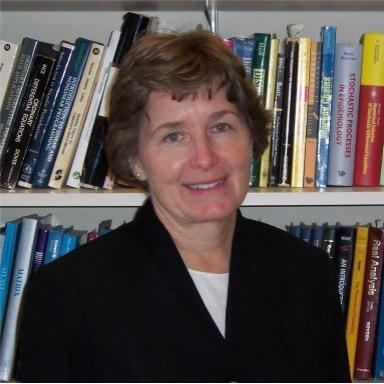Mathematical Association of America
Texas Section 93rd Annual Meeting
Workshop:
An Introduction to Stochastic Models in Mathematical Biology
Thursday, April 11, 2013, 6:30-8:30 p.m. Mathematics and Statistics room 113
Abstract: Classic models in mathematical biology describe the growth and interactions within or among populations, such as exponential or logistic growth, predator-prey, competition, or infectious disease spread within a population. These classic models are often formulated in terms of ordinary differential equations, where population sizes change continuously over time. When population sizes reach low levels, the continuous state assumption of these deterministic models is no longer realistic. To more accurately address questions about the probability of species survival, or of species invasion, or of disease outbreaks, stochastic models that take into account the discrete number of individuals are required. In this workshop, we discuss continuous-time Markov chain formulations for some of these classic population and epidemic models and address questions about probability of survival. MATLAB programs are used to illustrate the behavior of deterministic models versus Markov chain models.
Exponential Growth Example: ODE dN/dt=(b-d)N, b=2, d=1.25, N(0)=2 (dashed curve) and five sample paths of the Markov chain model (red curves).

Detailed Abstract: Abstract
Sample MATLAB Code: Sample MATLAB Code


